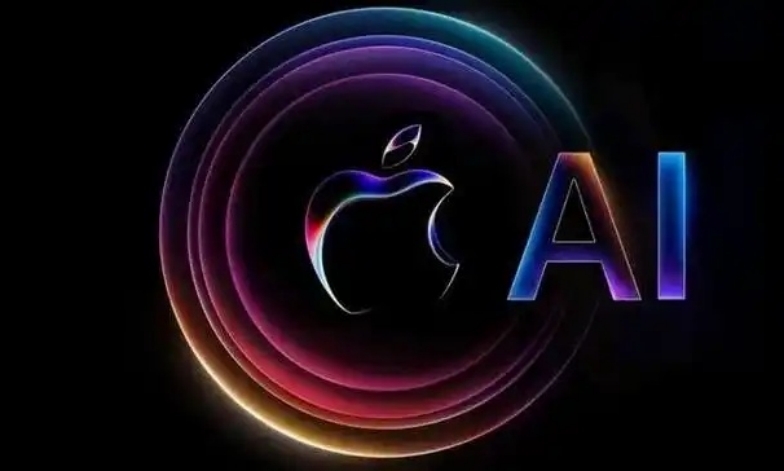
Apple recently secretly formed a new team called "Answers, Knowledge, and Information" (AKI), led by former Siri head Robby Walker, aimed at developing an "answer engine" that benchmarks ChatGPT to address its long-standing weaknesses in the field of artificial intelligence. This action marks a sharp turn in Apple's strategy - previously, company executives publicly questioned the necessity of chatbots and claimed that they would not develop them, but now they are forced to face the reality of generative AI reshaping industry rules.
Apple's AI dilemma is exposed in Siri's predicament. When users ask complex questions, Siri still frequently hands over requests to ChatGPT's simplified interface or directly redirects to Google search pages, especially on screenless devices such as HomePod, where users are often forced to face blank screens. This dependency exposes Apple's core flaw: the lack of autonomous conversational search capabilities. What's even more serious is that the default search agreement between Apple and Google, which has an annual revenue of about $20 billion, is facing the risk of collapse in antitrust lawsuits by the US Department of Justice. Eddy Cue, the head of the service business, admitted in court that "AI search is the future," indirectly acknowledging that Apple's business lifeline is controlled by others.
At the level of external competition, Meta founder Mark Zuckerberg recently announced that "AI glasses will replace smartphones" and his vision of "personal super intelligence" is competing for talent with a sky high salary of $100 million; OpenAI CEO Altman collaborates with former Apple designer Eve to develop the 'third core device', directly targeting the ecological hegemony of the iPhone. However, Apple's response appeared pale - Cook emphasized at the earnings conference that "it's hard to imagine a world without an iPhone," which was interpreted as a defensive declaration against disruptors.
Internal turmoil is equally severe. AKI team leader Walker was transferred in April 2025 due to delays in the Siri project, and his comeback is seen as a risky gamble. In the past month, Apple's AI team has lost at least four core researchers to Meta, including former AI leader Ruoming Pang. The combination of talent outflow and leadership turnover reflects Apple's systemic disadvantage in the battle for AI talent.
Apple is attempting to build differentiation barriers through privacy protection. The recruitment information shows that the AKI team is recruiting engineers to develop a "large-scale language model that emphasizes privacy protection", and plans to achieve data security through device side processing and encryption cloud system Private Cloud Compute. However, this strategy faces a fundamental contradiction: how to provide an experience comparable to cloud based ChatGPT under the limited computing power of iPhone? The current prototype shows that its answer engine is only a "simplified version of ChatGPT", focusing on basic Q&A functions and has not yet broken through cutting-edge fields such as multimodal interaction.
The deeper hidden danger lies in Apple's hardware dependency. Although the iPhone 17 Pro prototype is testing specialized chips to enhance AI, competitors have turned to exploring "de hardware" - Meta's AI glasses attempt to replace screens through visual and auditory interaction, while Apple still relies on the next generation of phones for breakthroughs. This path difference may put Apple in a passive position of "patching Siri vulnerabilities" rather than leading the interaction revolution.
The AKI project is still in the early framework stage and its form is not yet clear: it may be launched as a standalone app or deeply integrated into Siri and Spotlight. Software director Craig Federighi promised that the new version of Siri would be a "bigger upgrade than originally envisioned," but the timeline exposed the urgency - a comprehensive upgrade would have to wait for the release of iOS 27 in 2026, and employees' inquiries about Siri's progress during internal meetings only received vague responses of "this is the most frequently asked question recently.
Apple's wavering attitude has exacerbated the crisis of user trust. Last year, the high-profile collaboration with OpenAI to integrate ChatGPT was actually a disguised recognition of one's own technological shortcomings; Now hastily researching and delaying the AI version of Siri until 2026 due to "basic functions not meeting expectations". When Zuckerberg showcased the prototype of AI glasses that could "interact in multiple modes throughout the day," Apple engineers were still designing the middle page for Siri to switch to ChatGPT - a contrast that reflects Cook's pale defense of "inventing a modern version, although not the first.
In 2011, when Steve Jobs unveiled the first generation Siri, the concept of voice assistant amazed the world; Fourteen years later, Apple, standing on the edge of the AI wave, has only one ticket left in its hands called "Privacy". Can this ticket board the high-speed generative AI train, or become another 'unfulfilled promise' in the museum? The answer may not be in Cupertino's conference room, but in the fading patience of users.

On January 4th local time, Trump warned India that if it does not limit its purchase of Russian oil, the United States will continue to raise tariffs on Indian products. Trump's latest warning sent shockwaves through the Indian financial market in just one day.
On January 4th local time, Trump warned India that if it do…
In October 2025, the US trade deficit narrowed unexpectedly…
According to the British media CoinJournal, recently, due t…
In January 2026, US President Trump once again set his sigh…
Europe is facing a crucial strategic choice: In the face of…
On New Year's Day 2026, BMW China announced a "systematic v…